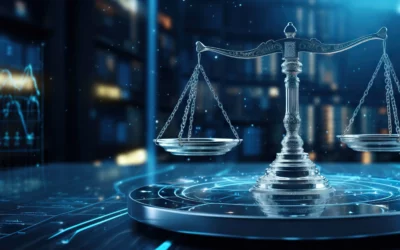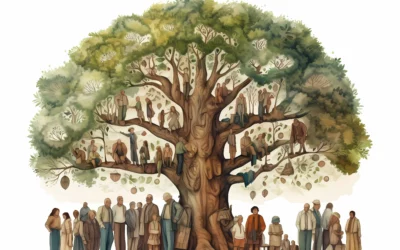
Written by Rick B. Larsen
June 11, 2020
Originally published in Deseret News.
There are two things that stand out as I watch a nation react to the death of George Floyd.
First, I will never understand how any American, in any corner of their mind, can assert Mr. Floyd to be deserving of such a fate based on the color of his skin. Second, there is more than a single agenda at play. The righteous cause of racial equality is being hijacked – and that is a wake-up call we cannot afford to ignore.
The struggle for racial equality is one of the most incomplete and inconclusive tests within the larger American experiment. It has tormented and perplexed this nation from the beginning. And, based on the average age of those I see protesting, we now face a generation who has had enough.
If we properly view America as the world’s most ambitious commitment to freedom, there is so much we have done right. In 1776, it was breakthrough thinking – the most consequential hypothesis in human history – that declared, “We hold these truths to be self-evident, that all men are created equal, that they are endowed by their creator with certain unalienable rights.”
The proposition was monumental, and it defied all human history.
Have we forgotten that racial divides and oppression did not originate in America? Both were imported. One need only open up the Old Testament, along with every other piece of recorded history since, to be reminded that class, caste, oppression and enslavement were the norm. The reason people all over the world are protesting what happened to a black man in Minneapolis is that they too have the same abuses within their cultures and histories.
The hopeful truth – a truth we must remember and build upon – is that the Founders of this nation were among the first, and certainly the most successful, at organizing a governing philosophy that moved beyond Enlightenment thinking of the day and declared that all men are created equal and that rights come not from a king or a ruler – but from God.
We must not dismiss or take for granted this declaration or how truly revolutionary the concept was. It led to a literal revolution. It was the best vision of life and liberty humankind had ever seen, and it still is today. The question is, can we – will we – continue with a refining of the experiment?
As in any complex experiment, mistakes are made. Slavery and its attendant evils were issues kicked down the road in exchange for the Declaration of Independence and the Constitution. The Founders knew it was the proverbial bridge too far in an emerging nation in the 18th century.
Many say America’s original sin was a poor compromise. However, some historians have a different perspective. They see the courage it took among those who chose – against all history – to move forward with the larger experiment. A choice that set the framework of a nation wherein we could see a day when the belief that all men created equal would be realized. Justice delayed? Yes. But still achievable? Also, yes. Whether that choice was a fatal flaw is now ours to decide.
We face the most consequential opportunity since a tenuously reunited, post-Civil War nation dusted itself off, stood upright and chose to continue the experiment – imperfections and all.
Right now, we can redefine recovery beyond the economy and a virus. Why not expand recovery to include the reclamation of an understanding of our history and of how civic institutions and society were meant to work? Why not reexamine how faith can bring us together and strengthen the fabric of our communities against hate and division? Imagine the potential of an animated generation who become familiar with what “civil” rights really entail.
The 1860s and 1960s saw important but costly and imperfect progress. Now we stand at a new crossroads – one we have never visited before. After seeing in vivid detail an officer of the law kneeling on the neck of a black man until he stopped breathing, we are witnessing a reaction that oddly includes a disregard for communities and justice under the rule of law that the protests demand. But the cry “no peace, no justice” is not so much a threat, but a statement of fact. There can never be peace in a nation that continues to compromise and qualify its highest aspiration of equality.
The good news: It is within our ability to focus on the here and now – not on past failings – and understand all that we can accomplish in this moment and within this framework for freedom.
Is the experiment over? Is it too flawed to continue? Has the scope and importance of the original hypothesis been lost to revisionist history? Or are we at the breakthrough moment?
I suggest the latter … if we have the will. Before we abandon the virtues and aspirations that so many have sacrificed their lives for, we should first try fully living up to their promise and potential. We should listen to those within the protest movement who call for a focus on the issues of race, rights and fairness, but we should also hold accountable those who loot and destroy the property and businesses built by their own neighbors.
It is inadequate to seek merely a post-COVID, post-demonstrations resumption of our lives. We must seek to build on what we know, what we have learned, and work to improve the state of our nation. This requires a very personal decision that must be made by a committed majority of citizens.
Racism did not begin in America. But it can end here.
To protesters and police officers alike – focus on the main issue. Seek real change – not more violence. The foundation is already in place. The intent has always been there. The moment is now to realize the promise. You are taking on something our Founders could not – and you are doing so in a nation that affords the freedom to have a voice. Secure your moment in history with peace, dignity and purpose. Perhaps this is the generation who – one hundred years from now – will be looked back upon not as destroying the principles of freedom, but fully realizing them.
More Insights
Read More
App store regulations are necessary, constitutional, and popular
In the absence of age verification requirements, there are no limitations on what apps children or youth can download. This raises at least two significant concerns.
The (AI) doctor will see you now? Exploring the potential of artificial intelligence in healthcare
Could AI replace your doctor or simply help them better do their jobs?
How 16 Utah school districts are strengthening parental partnership through online access
Parents and schools are better education partners when schools provide parents with access to curriculum information and parents effectively utilize it to support their students.


